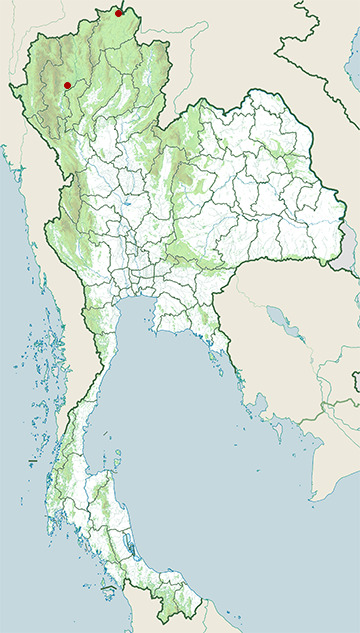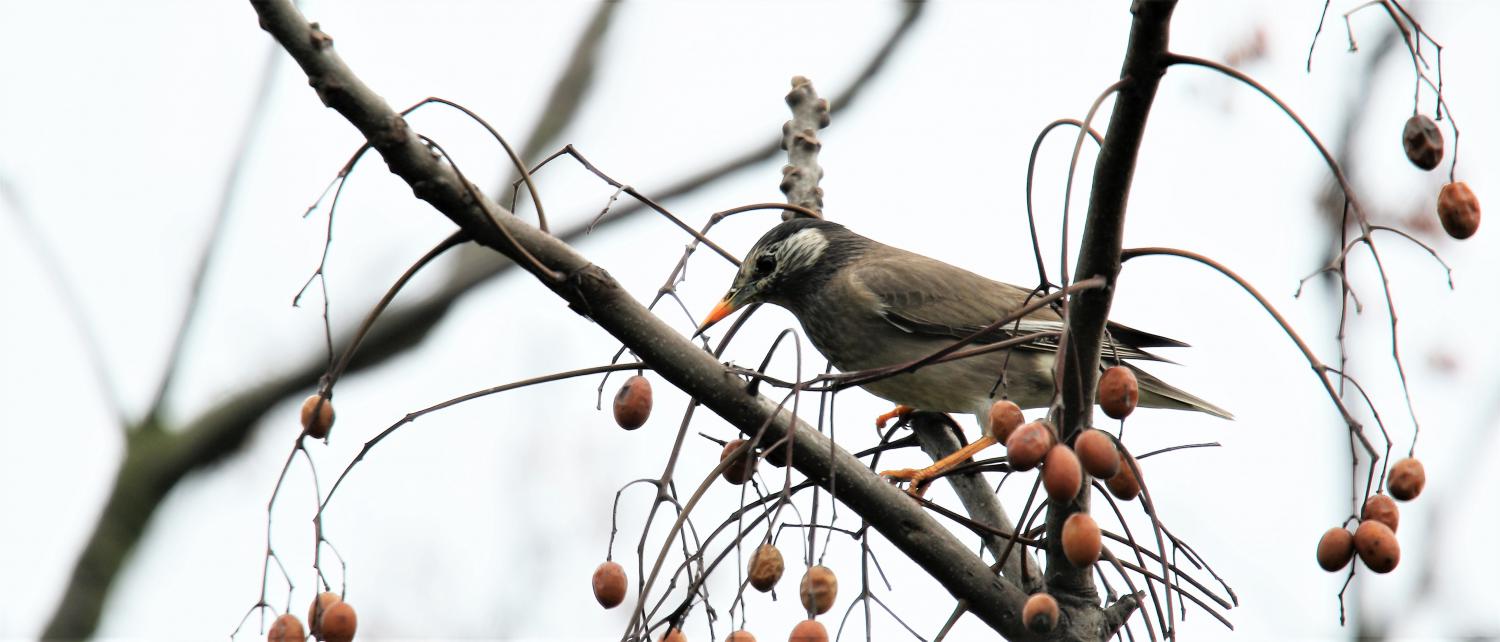Species of Thailand
White-cheeked starling
Spodiopsar cineraceus
Coenraad Jacob Temminck, 1835
In Thai: นกกิ้งโครงแก้มขาว
The white-cheeked starling or grey starling (Spodiopsar cineraceus) is a passerine bird of the starling family. It is native to eastern Asia where it is a common and well-known bird in much of its range. Usually, it is placed in the genus Spodiopsar.
Description
White-cheeked starlings are 24 cm in length. The adult male is mainly dark grey-brown with a paler belly and a whitish band across the rump. The head is blackish with whitish cheeks and forehead. There is a white border to the tail and white markings on the secondary wing feathers. The legs are pale orange and the bill is orange with a black tip. Adult females are similar to the males but paler and duller.
The juvenile is brown with pale cheeks and rump and no black tip to the bill.
The loud, monotonous call is a series of harsh, creaking notes.
Distribution and ecology
The breeding range covers central and north-east China, Korea, Japan and south-east Siberia. In winter birds from colder regions migrate south to southern and eastern China, South Korea, southern Japan, Taiwan and northern Vietnam with vagrants reaching the Philippines, Thailand and Myanmar. There is a record from Homer, Alaska in 1998 which probably arrived with a ship (West 2002).
It inhabits woodland, farmland, and open country and has also adapted to parks and gardens in urban areas. It is most common in lowland areas (usually below 700m in Japan).
It has a varied diet which includes fruit and insects such as mole crickets.
The breeding season lasts from March to July and often two clutches of eggs are laid during that time. The nest is built in a hole in a tree or building or in a nestbox. Four to nine eggs are laid and are incubated for 14 to 15 days. The young birds fledge 13 to 15 days after hatching.
This article uses material from Wikipedia released under the Creative Commons Attribution-Share-Alike Licence 3.0. Eventual photos shown in this page may or may not be from Wikipedia, please see the license details for photos in photo by-lines.
Category / Seasonal Status
Wiki listed status (concerning Thai population): Accidental
BCST Category: Recorded in an apparently wild state within the last 50 years
BCST Seasonal status: Non-breeding visitor
Scientific classification
- Kingdom
- Animalia
- Phylum
- Chordata
- Class
- Aves
- Order
- Passeriformes
- Family
- Sturnidae
- Genus
- Spodiopsar
- Species
- Spodiopsar cineraceus
Common names
- Thai: นกกิ้งโครงแก้มขาว
Synonyms
- Spodiopsar cineraceus
Conservation status

Least Concern (IUCN3.1)
Photos
Please help us review the bird photos if wrong ones are used. We can be reached via our contact us page.
Range Map

- Doi Lo District, Chiang Mai
- Nong Bong Khai Non-Hunting Area
